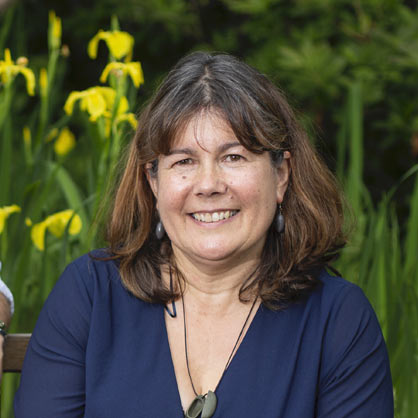Tourism and te ao Māori
Māori cultural values need to be front and centre of tourism planning and management, says Associate Professor Anna Carr.
Associate Professor Anna Carr (Ngāpuhi, Ngāti Ruanui, and Kaiāwhina Māori for the Department of Tourism) has been researching sustainable tourism and indigenous peoples for more than two decades. Prior to academia, she worked for the Department of Conservation and in the tourism sector as an owner-operator of two New Zealand adventure tourism businesses. She knows her stuff.
Carr is currently co-editing the third edition of Tourism and Indigenous Peoples with Professor Richard Butler (to be published by Routledge in 2023). Casting a wide global net, contributors' chapters will look at how indigenous peoples' knowledge, traditions, community involvement, entrepreneurship, innovation, policies and politics are positioned within tourism. Her own research gaze is trained on Aotearoa's progress towards a sustainable tourism path – one that fully embraces te ao Māori.
Māori leaders and spokespeople have long stressed the need for environmental and social needs to be prioritised within tourism. While indigenous values such as manaakitanga and kaitiakitanga have been written about and incorporated into various tourism documents, this is often little more than lip service.
“I feel that genuine engagement and representation of Māori in tourism planning processes is in its infancy,” says Carr. She points to government agencies such as the Ministry of Business, Innovation and Employment and the Department of Conservation, Regional Tourism Organisations, and their destination or national park management plans: “They need Māori staff as authors/planners/managers and other contributors throughout the planning processes – from the earliest stages through to implementation and monitoring.”
“Indigenous cultural landscapes are evocative of well-being, health, environmental guardianship and traditional ecological knowledge.”
Associate Professor Anna Carr
Capacity needs to be built in this area by training and supporting the next generations, “so that Māori are not just providing tourism or visitor experiences, but are also at the forefront of managing the landscapes where such experiences occur”. Only then will we see indigenous values that are “not just incorporated, but genuinely engaged with”.
Some tourism operators are already situating Māori cultural identity at the centre of their businesses. They get a resounding A+ from Carr.
She cites community tourism experiences like Kapiti Island Nature Tours (run by the Barrett whānau) and Kohutapu Lodge and Tribal Tours in the Bay of Plenty (operated by Nadine and Karl ToeToe) as leading the charge on this front. “John Barrett and Nadine ToeToe have served on national and international tourism advisory boards and been able to use their cultural lenses and industry experiences to inform government policy and directions.”
The tourism sector clearly has a lot of mahi to do. But if it engages deeply and genuinely with te ao Māori, the rewards will be manifold, says Carr. “Indigenous cultural landscapes are evocative of well-being, health, environmental guardianship and traditional ecological knowledge. Such landscapes are the future of cultural sustainability and their wise management should be of equal importance to economic development.”
Funding
University of Otago
Associate Professor Anna Carr.


